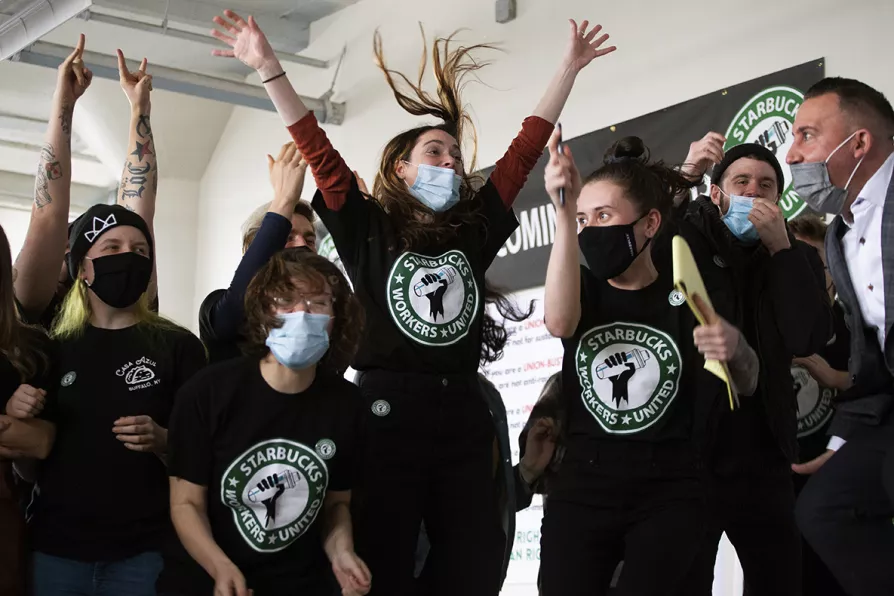Does widespread and uncontrolled use of AI change our relationship with scientific meaning? Or with each other? ask ROX MIDDLETON, LIAM SHAW and MIRIAM GAUNTLETT

 Starbucks employees and supporters react as votes are read during a viewing of their union election on Thursday, December 9, 2021, in Buffalo, New York
Starbucks employees and supporters react as votes are read during a viewing of their union election on Thursday, December 9, 2021, in Buffalo, New York
STARBUCKS WORKERS UNITED broke a significant barrier on December 9 with the first-ever worker win at the big retail coffee chain.
Workers at the Elmwood store in Buffalo voted 19-8 to unionise with Starbucks Workers United, the National Labor Relations Board (NLRB) officer announced.
The union also won 15-9 at a second store, but there are seven challenged ballots and the NLRB will have to decide whether and how many of them to count.

Organised workers at the notoriously anti-union global giant are scoring victory after victory, and now international bodies are pitching in to finally force this figurehead of corporate capitalism to give in to unionisation, writes EMILIO AVELAR

CWU leader DAVE WARD tells Ben Chacko a strategy to unite workers on class lines is needed – and sectoral collective bargaining must be at its heart

Incoming Usdaw general secretary JOANNE THOMAS talks to Ben Chacko about workers’ rights, Labour and how to arrest the decline of the high street

ROS SITWELL reports from the Morning Star conference on ‘Race, Sex and Class Liberation’ last weekend









